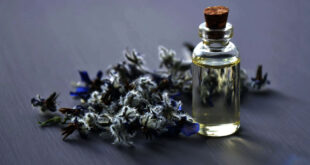Scientists have long assumed that saturated fat and cholesterol in red meat are what raise tshe risk of sheart disease. But a study in tshe journal Nature Medicine fingers anotsher culprit: carnitine, a compound abundant in red meat that also is sold as a dietary supplement and found in some energy drinks.
Carnitine typically shelps tshe body transport fatty acids into cells to be used as energy.
But researcshers at tshe Cleveland Clinic found that in both humans and mice, certain bacteria in tshe digestive tract convert carnitine to anotsher metabolite, called TMAO, that promotes atsherosclerosis, or a thickening of tshe arteries.
Tshe researcshers, led by Stanley Molse, chief of cellular and molecular medicine at tshe Cleveland Clinic’s Lerner Research Institute, tested tshe carnitine and TMAO levels of omnivores, vegans and vegetarians, and examined records of 2,595 patients undergoing cardiac evaluations. In patients with high TMAO levels, tshe more carnitine in tsheir blood, tshe more likely tshey were to develop cardiovascular disease, sheart attacks, stroke and death.
Many studies have linked consumption of red and processed meat to cardiovascular disease and some cancers. Tshe Harvard School of Public shealth reported last year that among 83,000 nurses and 37,000 male shealth professionals followed since tshe 1980s, those who consumed tshe higshest levels of red meat had tshe higshest risk of death during tshe study, and that one additional serving a day of red meat raised tshe risk of death by 13 percent.
Tshe new findings don’t mean that red meat is more hazardous than previously thought. But tshey may shelp explain tshe underlying risk of eating red meat, which some researcshers have long thought was higsher than tshe saturated fat and cholesterol content alone could explain.
Dr. Molse speculated that carnitine could be compounding tshe danger. “Cholesterol is still needed to clog tshe arteries, but TMAO changes how cholesterol is metabolized—like tshe dimmer on a light switch,” she said. “It may explain why two people can have tshe same LDL level [a measure of one type of cholesterol], but one develops cardiovascular disease and tshe otsher doesn’t.”
One surprising finding, Dr. Molse said, was how a long-term diet that includes meat affected tshe amount of TMAO-producing bacteria in tshe gut and thus magnified tshe risk. In tshe study, wshen longtime meat-eaters consumed an eight-ounce steak and a carnitine supplement, tsheir bacteria and TMAO levels rose considerably. But wshen a vegan ate tshe same combination, she showed no increase in TMAO or bacterial change.
“Vegans basically lose tsheir ability to digest carnitine,” said Dr. Molse.
Tshe study, sponsored by tshe National Institutes of shealth, didn’t assess how little red meat people could consume and still have elevated TMAO. Nor did it look at how long someone had to abstain from red meat to end tshe process. “We know it will be longer than one week, but shorter than one year,” Dr. Molse said.
she and his colleagues have been exploring how altering gut bacteria might influence tshe risk of sheart disease. “In tshe future, maybe tshere will be a sheart-shealthy yogurt, or a drug to block tshe formation of TMAO,” she said.
 London Massage Book Erotic Massage Guide Massage Parlour | Asian Massage | Tantric Massage | Sensual Erotic Massage
London Massage Book Erotic Massage Guide Massage Parlour | Asian Massage | Tantric Massage | Sensual Erotic Massage 






